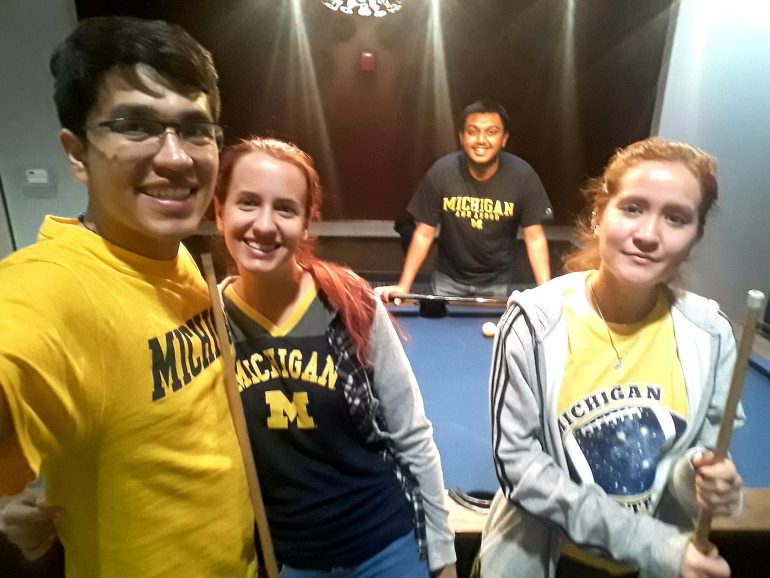With time comes change. It is no secret that engineering has a challenging curriculum, especially Chemical Engineering (ChemE). For community college transfers, the transition can be blindsiding compared to expectations, which is exactly what happened for me. Like a rollercoaster, I was in line to begin a new ride of my life, along with other “top-notch” students. But little did I know, the journey ahead of me was going to be different than expected.
Claiming My New Reality
Stepping up to a four-year university was an exciting challenge for me. In the beginning, I looked forward to socializing with others who shared my STEMsation passion and occupying my downtime with extracurriculars. Once I realized what I would face, I was overwhelmed with fear and panic. My first round of tests discouraged me into second-guessing my abilities; even altering my ways of learning and studying made no change in my grades. It was like the wind kept pushing me back and I kept enduring the turbulence without time to process or recover what just happened. I went downhill fast.
Harnessing My Energy
A quarter into my first semester, I hit rock-bottom. I noticed I was not my typical self and forgot what my education meant to me. My education seemingly turned into an obligation rather than enjoyment. It took some time before I knew what to do. I realized I had to begin with my mental health. There came a period where I had to let go of my unrealistic expectations and focus on myself—my goals, thoughts, actions, and reflection. Patience and time were key components to my process. For example, the most effective part of taking action was verbally encouraging myself that I need to keep moving forward, repeatedly saying “You got this Meg!” and “You can do it!” After facing numerous loops, something in me had to also change. My ultimate hope was to glide upwards and escalate from there.
Elevating My Dedication to My Major
Despite the twists and turns, I was determined to show others that I was the embodiment of a slingshot effect, pulling myself backwards then shooting towards my target. With my dedication to my goals, I knew I was not going to fall easily. Struggling with one of my most challenging, weed-out courses led me to seek the help of a tutor. Utilizing my professors’ office hours also contributed to my desire to improve my education. Not only did I reach out for more help, but also found myself networking and studying with my peers in the program, especially, Chemical Engineering transfers. Along the ride, I eventually reunited with my grit and felt more like myself than before, ready and looking forward to class instead of dreading it.
Maintaining Consistency
To reach your goals, the most important elements are staying in the game and continuing to be engaged and committed. While I may have seemed on track, nothing lasts forever unless you create regularity. The only way I could secure myself from being stuck in a stand-still was recognizing that I was always going to be like a sine graph oscillating up and down periodically hitting highs and lows. So, moments when people were not around, it was up to me to utilize other forms of materials for my classes like videos, online academic sources, and textbooks. After refocusing myself to my studies and continuously taking time for my mental and physical health, by the end of the semester, I was filled with the sensation of thrill, excitement, and refreshment.
Educating Myself
My professors always told me that it was up to me to decide my future—nobody was going to do it for me. The biggest lesson from my first semester at a university was taking initiative to get what I wanted from my education. I learned to be a positive coach for myself and that reaching out for help is normal; mentors and friends are constantly jumping on-board to support; and everything will work itself out.
If you are struggling with school and feeling out of place, know that there is a way out. As long as you are willing to work hard and work on yourself, you can make it through and achieve anything you want. I realized my potential to strive for bigger and better and not keep my hopes down because my rollercoaster is not coming to an end anytime soon. I choose to continue moving forward in my adventure, for success starts with me.








